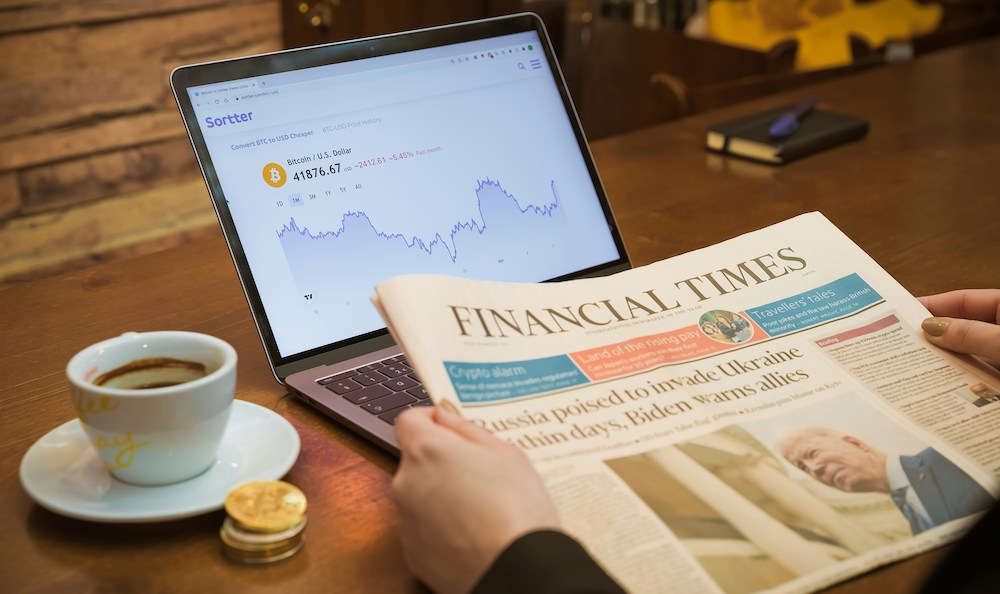The death last month of former Italian Prime Minister Silvio Berlusconi had implications not just for politics and satirists, but more so the European media landscape. It comes at a time when commercial broadcasters are struggling under a weak advertising market, and also seeking mergers in order to compete with streaming giants such as Netflix.
German media group ProSiebenSat.1 saw a particularly tough first quarter, reporting a 13 percent YoY drop in revenues. ProSieben slashed its dividend to €0.05 euros per share, sending its stock price down almost 19 percent, and pushing out CFO Ralf Peter Gierig after 20 years at the company.
What does all this have to do with a disgraced prime minister? MediaForEurope (MFE), the linchpin of Berlusconi’s media empire, holds a 28.87 percent stake in ProSieben, and 29.7 percent of voting rights. MFE has been upping its stake ever closer to the 30 percent mark that would trigger a mandatory buyout offer under German law, suggesting the holding group is looking to take over the German broadcaster.
And Berlusconi’s death added fuel to that speculation, handing control of MFE to his son Pier Silvio Berlusconi, who told employees: “We have to build an even stronger and more lively group.” MFE has pursued an aggressive acquisition strategy, taking over Mediaset España in March as it looks to build a pan-European media powerhouse.
But Prosieben CEO Bert Habets has talked down the possibilities of a merger, stating that the company needs to be “in control of our own destiny.” And according to François Godard, Senior Media and Telecoms Analyst at Enders Analysis: “The pieces of the puzzle are not together to launch a takeover.” This could spell bad news for Prosieben shareholders, “who would love to see an auction for their stock,” especially with the aforementioned cut to their annual dividend.
Market pressure
There are several reasons why a takeover is off the table. Aside from the regulatory intervention that has prevented European mergers over the past year, MFE has neither the resources nor unified management to pursue the acquisition, though further collaboration with ProSieben is a more likely outcome. “MFE always said that they wanted to create some sort of cooperation with the Germans without necessarily buying them,” says Godard.
And from ProSieben’s perspective, MFE does not add clear value to its business. ProSieben is looking to build a single video platform in Germany, and now has full control of streaming service Joyn, formerly co-run with Discovery. MFE would not necessarily help this digital strategy, not least because the Italian market is behind other European countries in its digital transition. Italy has one of the lowest rates of broadband penetration in Western Europe, notes the analyst, and the share of digital viewing is much lower than in Germany.
The German broadcaster would therefore be reluctant to enter another relationship with a company that does not share its vision, following the collapse of its Discovery partnership when the US firm merged with Warner Bros. The company was also hit when ProSieben acquired Meet Group, a social networking group that owns a range of dating apps, in 2020. The acquisition was intended to diversify the broadcaster’s business, but investors were less keen on the move, sending ProSieben shares to a decade low. “Market pressure has driven management to try a lot of things just to give some life to their stock price,” comments Godard.
A more viable path for ProSieben could be acquiring Sky Deutschland, as suggested by talks reportedly held in May this year. The deal would see Comcast paying ProSieben to take the German business off its hands, implying that Comcast has low expectations for Sky Deutschland, and that no one wants to buy it. For ProSieben the combination could add scale to the Joyn platform and make it a stronger proposition for future mergers; Bertelsmann chief Thomas Rabe has long called for a tie-up between ProSieben and RTL.
“If Comcast is paying you to buy Sky then you have to consider it,” says Godard. “That said, pay-TV has been around in Germany for quite a long time, and it has always disappointed. Rupert Murdoch, Comcast and all these people thought that pay-TV should grow fast in Germany because it’s a big market.” But the proliferation of free TV in the 1990s made German consumers unlikely to pay for TV subscriptions, as cable was included in monthly household fees and satellite channels were free. “It’s sobering to look at mistakes in the past if you want to make business plans.”





